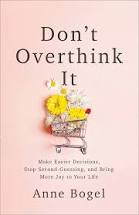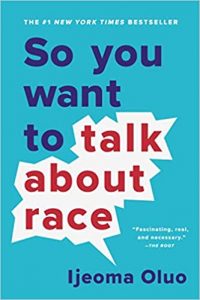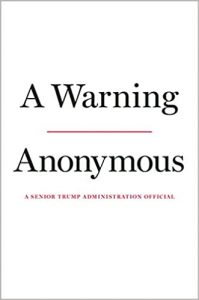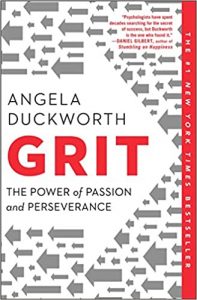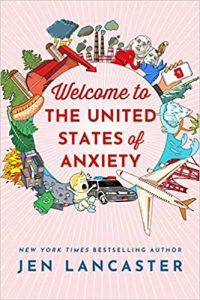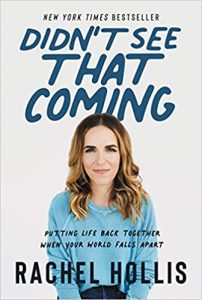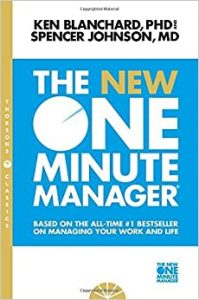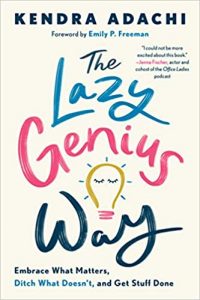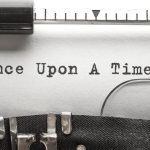I know that 20 sounds like a lot of books. Like I couldn’t choose my favorites, so I choose them all. But that’s not true. I actually narrowed the list down a lot.
I read 150 books in 2020. I’ve only read that many books one other year in my life. In 2014, I challenged myself to read 150 books. I barely finished by the new year.
Being at home and without full-time work most of 2020 made it easy to read a ton, even though I felt distracted and dropped a lot of books without finishing them.
So 20 books actually isn’t many out of 150. Here are my reviews of my 20 favorite non-fiction books of 2020 in the order I read them.
1. Why We Can’t Sleep: Women’s New Midlife Crisis
I’m the kind of person who falls asleep as soon as my head hits the pillow. I love to sleep and am known to nap, even after an ample night’s sleep. But I stopped sleeping through the night when I reached my 40s. I wake up almost nightly and it sometimes takes hours to fall back asleep. Apparently, I’m not alone.
Ada Calhoun researched why American women in my age bracket are so stressed out. What she found is that we have plenty of reasons not to be able to sleep, including being overly tired, terrified about our finances and overwhelmed by our lives. It seems that the generation raised to have it all is having a difficult time keeping up with that standard of living. Surprised? Me neither, but it was nice to learn that I’m not alone.
2. Willpower Doesn’t Work: Discover the Hidden Keys to Success
Benjamin Hardy is speaking my language in this book. I have no willpower. The older I get, the worse I get about buckling down and making new things happen. Imagine how thrilled I was to learn that Hardy thinks the forcing It approach is all wrong.
Instead of forcing ourselves or faking it until we make it, Hardy claims we should alter our surroundings to support our goals. That way, the goal we want to reach becomes more automatic because we aren’t fighting a bunch of environmental factors to make it happen.
3. The Moment of Lift: How Empowering Women Changed the World
When women support women, the world improves. There is nothing that women can’t do when we support and uplift each other.
I love a strong woman, especially when she uses her strength and position to support other women. Melinda Gates does just this, and she wants the world to join her.
Gates spent the last 20 years discovering the secret to making the entire world a better place — support women. It’s that simple.
In her book, Gates shares lessons she’s learned from around the world about how women are and aren’t supported, and how much the world can change for the better when this inequality is addressed.
4. The Phantom Prince: My Life with Ted Bundy
There are a couple of serial killers that anyone interested in true crime knows entirely too much about. Ted Bundy is one of them.
I know a silly amount about Bundy, having read books and watched shows about him through the years. But Elizabeth Kendall’s memoir about her six-year relationship with Bundy showed me a different side of the serial murderer.
The most disturbing part of Kendall’s book for me was her description of Bundy’s relationship with her daughter, Molly Kendall. The new edition of the book also includes a chapter from Molly, who had never before shared her views on Bundy. If there was any way left to still romanticize Bundy (and there really shouldn’t be), reading about his treatment of Molly will change your mind.
5. Don’t Overthink It: Make Easier Decisions, Stop Second-Guessing and Bring More Joy to Your Life
Anne Bogel, who writes a reading blog, Modern Mrs. Darcy, is a recovering overthinker. In her book on the topic, Bogel provides readers with practical tools to overcome negative thought patterns, which are repetitive, unhealthy and unhelpful.
The book was an easy, fast, helpful read that made the reader consider their overthinking habits and whether those habits needed to be eliminated.
6. FINDING THE NEWS: ADVENTURES OF A YOUNG REPORTER

Peter Copeland’s story of his career starts with Copeland as a night cops reporter in Chicago and works its way to him as a war correspondent, then a national politics reporter in D.C.
If you love journalism or you’re just curious about the profession, you’ll enjoy reading about Copeland’s career. I was in awe of how tough he must be to have been a war reporter. This is one journalistic assignment I’ve never aspired to have. I just don’t have the kind of grit.
One thing that struck me about Copeland’s story is that he, like many other writers I know, doesn’t seem to give himself enough credit for his work. He writes about how he worked hard, but he also writes about how many times he feels like he lucked into being at the right place at the right time or was just somehow able to send a story from abroad. Copeland’s success as a journalist wasn’t luck at all. He didn’t plan to be a journalist, but his passion for storytelling and his desire to tell others’ stories accurately and to just be good at his craft made him strive to excel.
7. IN THE NAME OF THE CHILDREN: AN FBI AGENT’S RELENTLESS PURSUIT OF THE NATION’S WORST PREDATORS

Any book about child abuse is difficult to read. This book is about FBI Special Agent Jeff Rinek, who was known during his 30 years on the force for having a special talent for getting child predators to confess.
Rinek worked hundreds of investigations involving crimes against children during his career. But what struck me more than his ability to catch predators was the toll Rinek’s career took on his own mental health and the harm it did to his family.
8. JOY AT WORK: ORGANIZING YOUR PROFESSIONAL LIFE

I was intrigued when I saw that Marie Kondo had an organization book for our professional lives.
I wasn’t crazy about her book, The Life-Changing Magic of Tidying Up. I just don’t have the need to thank my coat for keeping me warm. Also, I’m not the kind of person who keeps stuff. I don’t have an emotional attachment to things. The book didn’t hit for me.
But, if you’ve ever seen my desk, it’s always a mess and my digital clutter is even worse. I decided to give Kondo’s second book a try.
Kondo wrote Joy at Work with Rice University business professor Scott Sonenshein. Together the authors provide advice for overcoming workplace messes that drain your energy and kill your productivity. The book provided a lot of strong takeaways that made it worth reading. Now if I would just implement some of them…
9. So You Want to Talk About Race
I cannot believe how many people are racist and otherwise inappropriate when it comes to Black women’s hair.
The thing with the hair — how people somehow think it’s ok to talk about, judge as unprofessional and even touch Black women’s hair without their permission — was just one of the things I learned about from Ijeoma Oluo’s book.
I worked more than ever before in 2020 to be a better ally. That work included reading a series of “the best” books on racism and white privilege. This book was by far my favorite because it made talking about race and racism seem much less frightening for those of us who are afraid to get it wrong.
10. How to Be Fine
I’d never heard of Jolenta Greenberg and Kristen Meinzer’s podcast, By the Book, when I read their book, which is a more in-depth version of their podcast concept of following the advice in self-help books and reporting back on the results.
As a self-improvement junkie, this book cracked me up. Greenberg and Meinzer have really different personalities, which makes it fun to hear how their results from following the books vary. Also, these women have no problem calling bullshit on self-help authors who don’t have credentials to support their advice or just try to get readers to do unrealistic things.
Needless to say, now I listen to the podcast too. Who can’t use a little self-help self-help?
11. Dan Rather: Stories of a Lifetime
If you’re not following Dan Rather on Twitter, you’re missing out. The thought and insight he puts into a single tweet is indicative of what a great storyteller he is. His Audible original set of stories is as captivating as one would expect.
In the book, Rather takes the reader through his life, including some of the biggest stories he covered during his 66-year career as a journalist. Through the stories, Rather reminds the reader of why, despite its flaws, a free press is critical to American democracy.
12. A Warning
No one knew Miles Taylor was the author of this book when I read it. Still, it was clear that the man, who also wrote a Sept. 5, 2018 essay in The New York Times knew a lot about what was happening inside the Trump White House.
The book attracted my attention because the author isn’t anti-Trump. It’s clear that he wanted the President to succeed, but he also provided repeated examples of why he just didn’t think it was possible. Taylor also gave the reader a look into how the White House operated under Trump and some of the concerns about the administration from the beginning.
I appreciated that Taylor ended the book talking about the importance of the presidency and restoration of the Republican party. He also offered suggestions for how we can move forward as a more united country. It was refreshing to see optimism pair with specific recommendations.
13. Grit: The Power of Passion and Perseverance
It’s not the smartest or most talented people who succeed in life. It’s the people who refuse to quit.
Angela Duckworth found this through years of researching and interviewing people in difficult situations, those who overcame tough odds and those who run major corporations.
Duckworth found that passion coupled with an unwillingness to give up are the true markers of success, regardless of any other factor.
14. Is Rape a Crime?
Don’t let the title of Michelle Bowdler‘s book fool you. Bowdler knows better than most how terrible a crime rape truly is.
Bowdler survived a multiple stranger break-in and rape in 1984. I cried as Bowdler described her rape and how it crushed her sense of safety and self.
Bowdler spent her career working in public health, moving from issues like addiction, sex education and HIV prevention to social justice issues related to rape and violence. She privately fought the demons being a survivor left her while helping others. Bowdler, who now serves as the executive director of Health & Wellness at Tufts University, recognized that she couldn’t fully serve others until she figured out what happened with her case.
Bowdler’s memoir, published this year, starts with her rape and details her investigation into how law enforcement handled the search for her attackers. What she learned, coupled with years of research on rape and sexual assault, is a devastating read that makes any reader want to fight for better treatment of rape survivors.
If a tree falls in the woods and no one hears it, did it fall?
If rapists aren’t punished, is rape a crime?
15. Welcome to the United States of Anxiety: Observations from a Reforming Neurotic
You know when you have to laugh or you’ll cry? Or when you just need a tough dose of reality? During those times, Jen Lancaster is your girl!
Lancaster seriously makes me laugh. Like belly laugh at a book. I love her snark so much. She is the witty, honest writer I aspire to be. Her newest book is no exception.
USA stands for “United States of Anxiety,” according to Lancaster. This, she says, is the result of us expecting the social media perfection we’re being greeted with every day while also being bombarded with news about what’s wrong in the world. Our realities conflict, which Lancaster handles in the most humorous way.
16. Didn’t See that Coming: Putting Life Back Together When Your World Falls Apart
Sometimes the right book comes to you at just the right time. That’s what happened for me with Rachel Hollis’s new book. The book released right when I needed it, even though I didn’t know it’s what I needed.
Hollis has experienced what she calls the “hard seasons” of life. In fact, she and her husband divorced as she finished writing this book. But, like many of us, she can compare this hard time to the absolute worst thing that happened in her life — her brother’s death.
Hollis’s book teaches readers how to hold on when you feel like giving up, and how to move forward through growth when life deals you an unfair hand.
17. Rage
Bob Woodward is one of the most prolific journalists of all time. I trust his reporting, so I was interested in his take on President Donald Trump.
What Woodward showed as a result of 17 interviews with Trump and observations while covering the Trump White House is a president out of his depths. In an attempt to maintain control and make the decisions necessary of his office, Trump rules by force and fear, both of which are intertwined with his own clear mental illnesses.
The most important findings in Woodward’s reporting is that Trump was warned in January 2020 about the COVID-19 pandemic. The president, according to Woodward’s reporting and the president’s own recorded words, understood the severity and implications of the pandemic, but still refused to respond immediately and appropriately.
18. The New One Minute Manager
Management certainly isn’t set it and forget it, so perhaps the title of this fundamental management book is a bit off. However, the book is packed full of important lessons and practical advice for leading others.
The book walks through a narrative of a man trying to learn why a certain leader is so effective. Through interviews with the leader and his staff, the man learns about the concept of the One Minute Manager and how it works.
The concepts of One Minute Goals, One Minute Praisings and One Minute Re-Directs aren’t difficult to understand. It’s also not difficult to see why they work or identify when you’ve seen effective leaders apply them.
This book is worth reading (and re-reading) by anyone who manages a team.
19. Badass Habits
We know that habits are important, so I appreciate any book that makes them easy to understand, set and keep.
Jen Sincero has great snark, even related to this important (life-changing?) topic. She approaches habits in her typical practical way, which makes it easier to understand how we fail with them and how to improve. The book is especially helpful because it includes a 21-day guide for ridding ourselves of bad habits and developing new ones.
Sincero’s book is worth reading and re-reading for anyone who enjoys self-improvement and is always looking to up their game. I confess that I listened to this book and likely will go back and read it in print to get even more from it.
20. The Lazy Genius Way
Just because you don’t live your life the way other people do doesn’t mean you’re doing it wrong.
That’s the overwhelming message in Kendra Adachi’s book and I am here for it!
What it means to live well is something you define, not something others should define for you. Once you determine what living well looks like to you, it’s easy to embrace life in a guilt-free way that makes you fulfilled.
You can help define and live your best life by following Adachi’s 13 Lazy Genius Principles, which she identifies in the book. The principles are basically life hacks that help you let go of (or easily accomplish) the “shoulds” so you can move on to your wants.
Happy Reading!
There they are, my 20 favorite nonfiction books of 2020. I hope you’ll find something here to read and love. I’d also love to know what non-fiction books you read and loved in 2020.
As always, happy reading!






